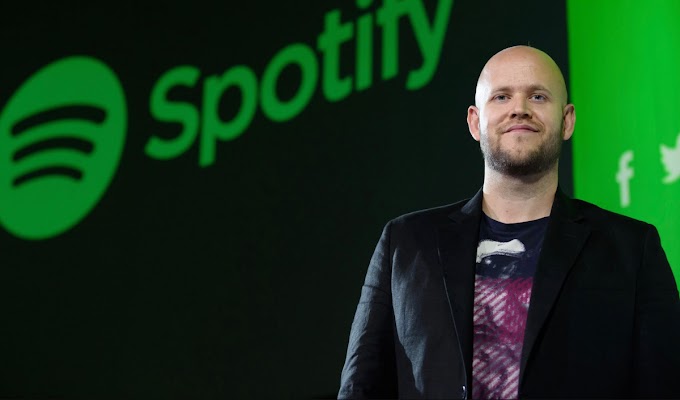Spotify CEO Daniel Ek, photo via Bloomberg |
Artificial intelligence (AI) has become a powerful tool in
the music industry, from generating song recommendations to recreating the
voices of popular musicians. This rising trend has sparked controversy and
debate among musicians and fans alike.
Recently, Drake and The Weeknd's fake "Heart On My
Sleeve" song created using AI was pulled from streaming platforms, while
Grimes welcomed the idea of AI-generated music. Liam Gallagher even expressed
enthusiasm for an Oasis AI album, calling it "mega."
Spotify CEO, Daniel Ek, has shared his thoughts on the
impact of AI-generated music on the future of the industry. During a conference
call, Ek noted that the trend has the potential to be "huge for
creativity," leading to more music and benefiting Spotify by increasing
engagement and revenue.
Earlier this year, Spotify announced an AI DJ feature that
recommends songs to users based on their listening history, featuring narration
from an AI bot. However, Ek acknowledges the potential downsides of
AI-generated music. In an episode of Spotify's For The Record podcast, he
explained, "I'm very familiar with the scary part...the complete
generative stuff or even the so-called deep fakes that pretend to be someone
they're not."
Despite the controversy surrounding AI-generated music, Ek
remains optimistic about its potential for the industry. "I choose to look
at the glass as more half-full than half-empty. I think if it's done right,
these AIs will be incorporated into almost every product suite to enable
creativity to be available to many more people around the world."
As the technology continues to advance, it remains to be
seen how AI-generated music will shape the industry and the music we listen to.
While some may view it as a threat to artistic integrity, others see it as a
tool for unlocking new levels of creativity and accessibility. The future of
AI-generated music remains uncertain, but one thing is clear – it's a trend
that's here to stay.
Despite the controversy surrounding AI-generated music, some
musicians and producers have already started experimenting with the technology,
using it as a tool for creating new sounds and compositions. AI-generated music
has the potential to challenge traditional notions of creativity and could lead
to the discovery of new musical possibilities.
However, there are also concerns that AI-generated music
could potentially lead to the loss of jobs for musicians and producers. Some
fear that AI could replace human creativity and create a world of mass-produced
music.
Another concern is the potential misuse of AI-generated
music for malicious purposes, such as impersonating public figures or creating
fake audio recordings. As the technology advances, there will be a need for
regulations and ethical guidelines to prevent such misuse.
Despite these challenges, the potential benefits of
AI-generated music cannot be ignored. With the ability to analyze vast amounts
of data and generate unique sounds and patterns, AI has the potential to open
up new avenues of creativity and innovation in music.
In conclusion, the rise of AI-generated music is a trend
that will undoubtedly shape the future of the music industry. While there are
concerns about its impact on artistic integrity and employment, there is also a
great deal of potential for creativity and innovation. As the technology
continues to develop, it is up to musicians, producers, and industry leaders to
navigate the complex landscape of AI-generated music and ensure that it is used
for the betterment of the industry and its listeners.








What do you think? Please let me know.